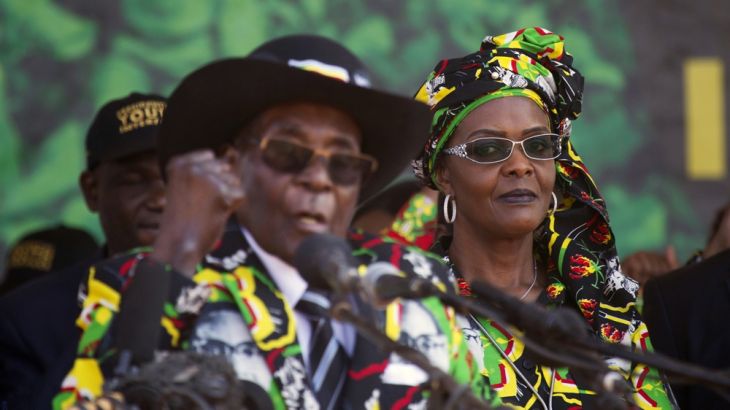
Zimbabwe: Mugabe’s Media Legacy
As Mugabe responds to reports that his wife assaulted someone, we examine the president’s media tactics.
As Zimbabwean President Robert Mugabe has seen his popularity wane over the years, he has developed a time-worn tactic when faced with criticism in the media: dust off the anti-imperialist credentials and deflect attention onto Zimbabwe‘s white former colonial masters inside and outside the country.
Mugabe’s response to a recent incident involving his wife, Grace, in South Africa, was a case in point. When the South African press censured Mrs Mugabe for allegedly assaulting a woman in Johannesburg, the president countered by questioning why whites still wield so much power in South Africa.
Keep reading
list of 4 itemsThirty years waiting for a house: South Africa’s ‘backyard’ dwellers
Photos: Malnutrition threatens future Afghan generations
From prisoner to president in 20 days, Senegal’s Diomaye Faye takes office
Even as a revolutionary, Robert Mugabe understood the power of the media. While in exile in neighbouring Mozambique in the 1970s, Mugabe would spend hours on the radio broadcasting speeches back into what was then called Rhodesia, calling for the end of white-minority rule and positioning himself as a leader who could stand up to imperialism.
When Mugabe came to power in 1980, he moved quickly to transform the Zimbabwean media. “The main Zimbabwean newspaper publishing company was actually controlled from outside the country. Their news coverage was sympathetic to white interests, so [Mugabe’s] first agenda was to seek to wrest that control from foreign ownership in South Africa,” says George Nyrota, the former editor of Daily News.
“One of the main aims of media policy after independence was to use Mugabe’s voice, to decolonise broadcasting and print media institutions,” adds Wendy Willems, an assistant professor at the London School of Economics. “It was really important for them to fight media imperialism more broadly.”
But for the most part, Mugabe did not implement the proposed media reforms many had hoped for, but instead adopted the same methods of control exercised by his predecessor, Ian Smith.
The Listening Post’s Nic Muirhead reports on Africa’s oldest sitting president and the media legacy he will leave behind.
Contributors:
Ibbo Mandaza, Political analyst
George Nyrota, Former editor Daily News
Wendy Willems, Assistant professor London School of Economics